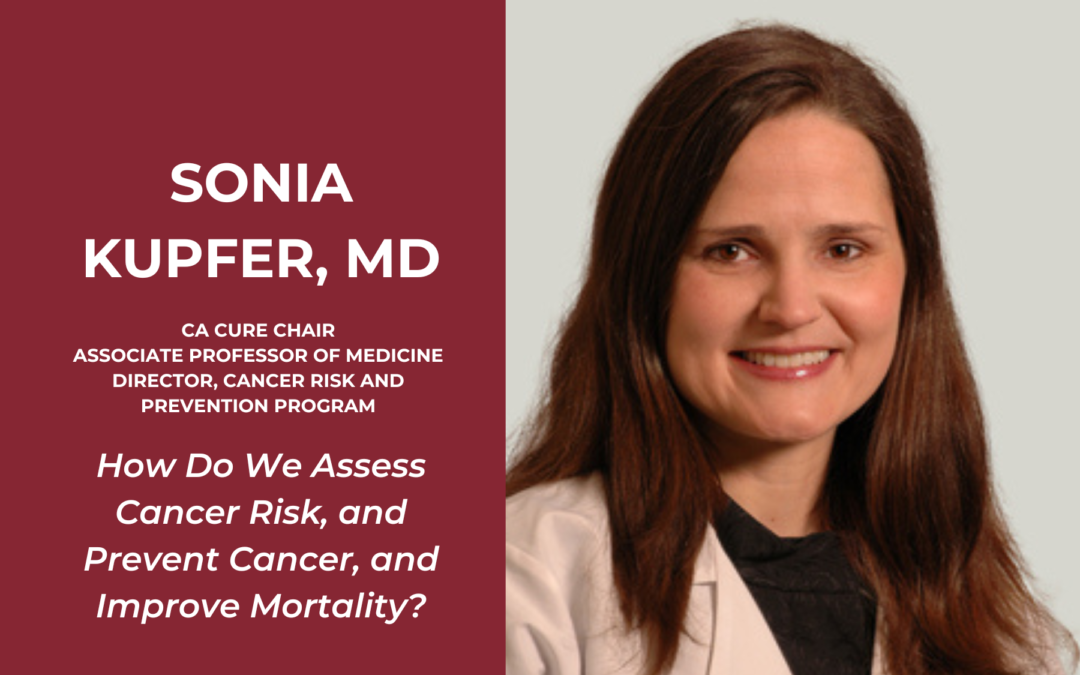Despite literal centuries of scientific inquiry, treating and curing cancer remains today’s foremost health research priority. In early 2022, the federal government even reignited the Cancer Moonshot program, working with the National Institutes of Health, including the National Cancer Institute, to “end cancer as we know it” in the United States and abroad.
Digestive diseases including inflammatory bowel diseases, fatty liver disease, together with other factors (like genetics, age, environment, diet, lifestyle, and demographics), all impact a person’s risk of developing cancer. Sonia Kupfer, MD, Associate Professor of Medicine, Director of the Cancer Risk and Prevention Program at the University of Chicago Medicine, and Chair of the new GI Research Foundation initiative CA CURE, is using advanced techniques to investigate how individuals respond to protective or risk factors for cancer in the environment.
One important area of Dr. Kupfer’s research is a relatively common hereditary cancer risk factor known as Lynch syndrome. Patients with Lynch syndrome are genetically predisposed to be at higher risk for many GI cancers, including colon cancer, gastric cancer, pancreatic cancer, and small bowel cancer.
“We know they have one mutation, on one chromosome,” says Kupfer, “But there have to be other factors that cause tumors to develop in these patients. What these factors are, and how they can be modified, are areas of great possibility.”
Dr. Kupfer and her lab are collecting samples from many patients, including those with Lynch syndrome, and building an organoid bank from patients with these specific mutations. These organoids, or “mini guts” grown in a lab, can then be treated with different therapies and chemopreventive agents to determine how the organoids respond.
Explains Kupfer, “Number one, we want to understand better how some of these chemopreventive agents are working. For example, there is good clinical-trials data that aspirin prevents colon cancer, specifically in Lynch syndrome. Now, we can look at how it works, and target those pathways. Secondly, we can determine who may respond best to which therapy, or who may have more response, and use that information to build more robust treatments. That’s the big vision here. But it’s early days right now.”
Another area of Dr. Kupfer’s research is with the international Pancreatic Cancer Early Detection Consortium (PRECEDE), a large-scale collaboration involving more than 20 research institutions, which aims to increase the 5-year survival rate from 10% to 50% within the next 10 years.
“Pancreatic cancer currently has a very poor outlook, and the survival rates from the seventies until today have increased by only a few percentage points. If we can identify the highest-risk people—Lynch syndrome patients, BRCA mutation carriers, those with strong family histories of pancreatic cancer—we can try to get them and their family members into surveillance programs,” explains Dr. Kupfer. “We hope that stratifying risk like this will increase cancer survival rates in a meaningful way in our lifetimes.”

